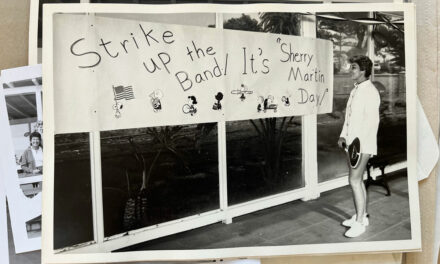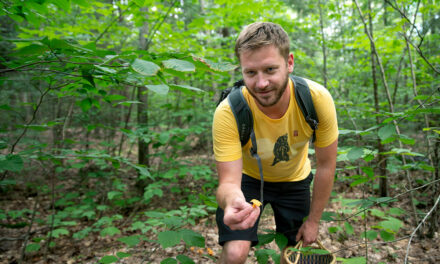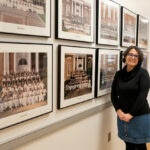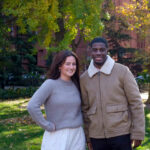
Dr. Roberta Klein
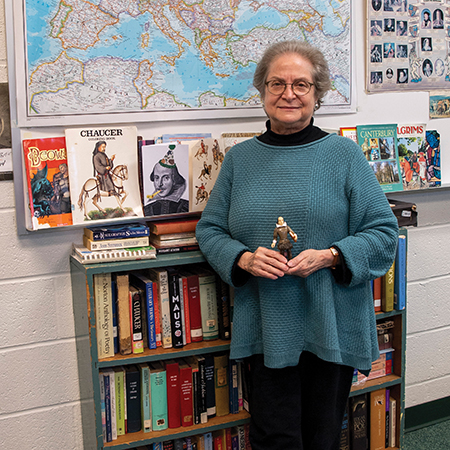
Dr. Roberta Klein
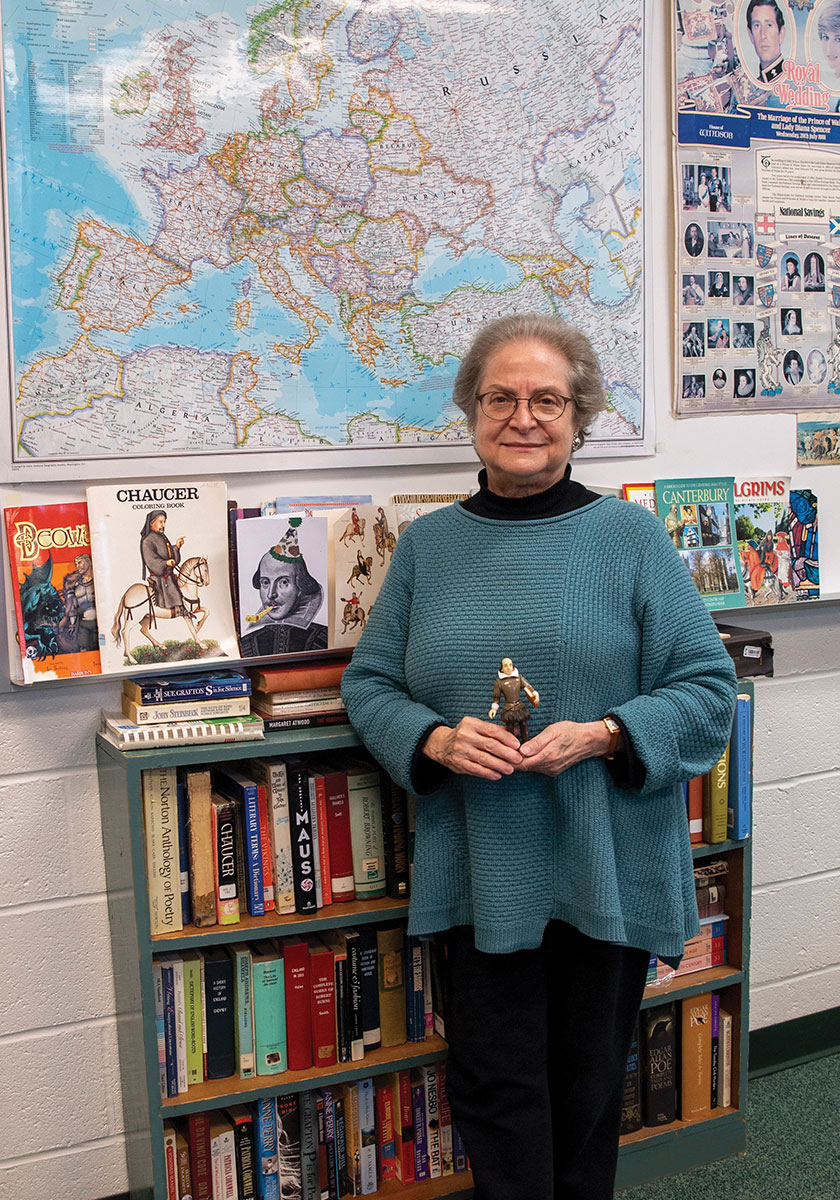
Reflecting on her 37 years as an Upper School English teacher, Dr. Roberta Klein is proud of teaching her students to think critically and write well. She is also famous for making them read “Beowulf,” Chaucer, and Shakespeare and inspiring her students to love them! Why are they relevant? Because “’Beowulf’ encapsulates the Old English worldview that ‘nothing gold can stay;’ Chaucer encourages us to look beneath the surface and think critically; and Shakespeare shows what happens if we lose our moral compass: all in the most exquisite language!” A self-described loyal and empathetic old soul, with a wry Seinfeldian wit, Roberta confides that most people think she is from New York City, but she was born in Texas and completed high school in Florida. After experiencing a few hurricanes, she headed north for college knowing exactly what she wanted to do. She was born to teach. She studied English literature, receiving a bachelor’s from Smith College and a master’s and a Ph.D. from U Penn, where she wrote her dissertation on Agatha Christie. A devout Anglophile, she estimates that her trips to study in England add up to two years of residence! Her fondest memories include visiting the houses of her favorite English writers, seeing Queen Elizabeth go by in a motorcade, dining with a duchess, and interviewing Agatha Christie’s husband, Max Mallowan. To relax, Roberta swims, pampers her cat, and works out with a trainer. She takes classes in acting, singing, creative writing, and ballroom dance. Her TV is usually tuned into a British show, while her playlist includes Gilbert and Sullivan operettas, classic ’60s rock, and Broadway musicals. Fun fact? Roberta has an ear for languages and can imitate any accent, which she says may come from watching “Rocky and Bullwinkle” as a child. What five authors would Roberta invite to dinner? With a sparkle in her eye she says, “I would love to chat with Chaucer and Shakespeare, and hear Chaucer read from the General Prologue of ‘Canterbury Tales!’ Having grown up reading ‘Gulliver’s Travels,’ I’ve always considered myself to be a Jonathan Swift groupie, though he would take sadistic pleasure in antagonizing the other writers. I feel a deep rapport with Agatha Christie; she’s very shy, though, so I’d have to entertain her alone. Would I dare to invite the melancholy Edgar Allan Poe and ask him about his misogynistic portrayals of women?”
What is something you could happily fail at? Singing solo. I’ll never have the volume or breath control to sing well solo, but I would happily fail at this task on the off chance that someone in the audience might enjoy or even be moved by my singing.
If you could wake up tomorrow having gained any one quality or ability, what would it be and why or what would you do with it? I would love to be fluent in every language, ancient and modern, both for reading and for travel. Imagine sitting down and reading The Odyssey, the Bible, Don Quixote—all in their original languages, or being able to chat comfortably with anyone on earth. Pipe dream!
What is the best piece of advice you’ve ever gotten? I’ve always loved this observation from Thoreau: “If a man does not keep pace with his companions, perhaps it is because he hears a different drummer. Let him step to the music which he hears, however measured or far away.”
What one piece of advice would you offer anyone who asks? Figure out what you do well and love doing best, then do it!
When did you first really feel like an adult? When I got my job at St. Agnes, I had to leave my casual grad student life at UPenn, move to Alexandria, buy a house and a car. My parents helped me out financially, but with the responsibilities of a “real” job, a house, and a car, I suddenly felt like an adult.
What is something one of your parents said that you will never forget? My father often quoted this advice from William Penn, which I have taken to heart: “I expect to pass through life but once. If, therefore, there be any kindness I can show, or any good thing I can do to any fellow being, let me do it now, and not defer or neglect it, as I shall not pass this way again.”

